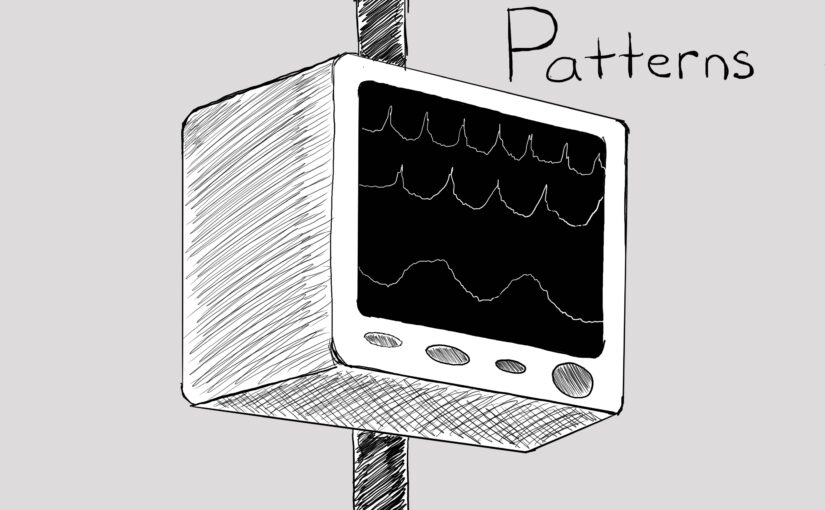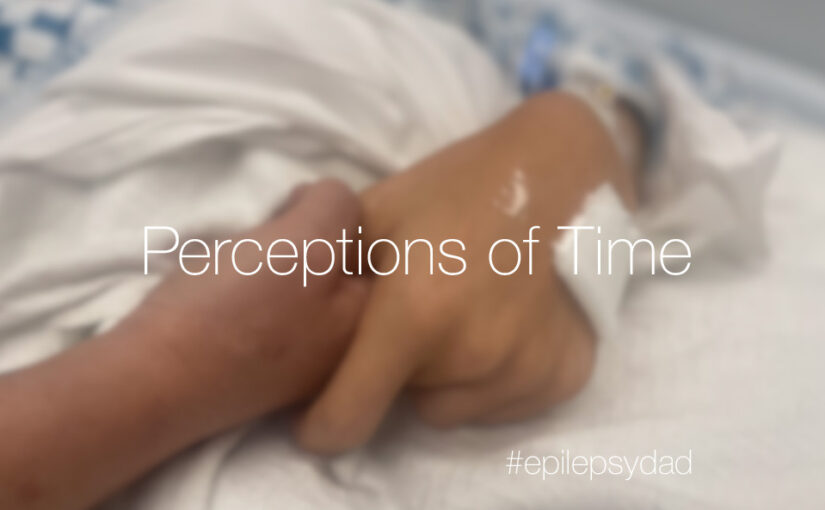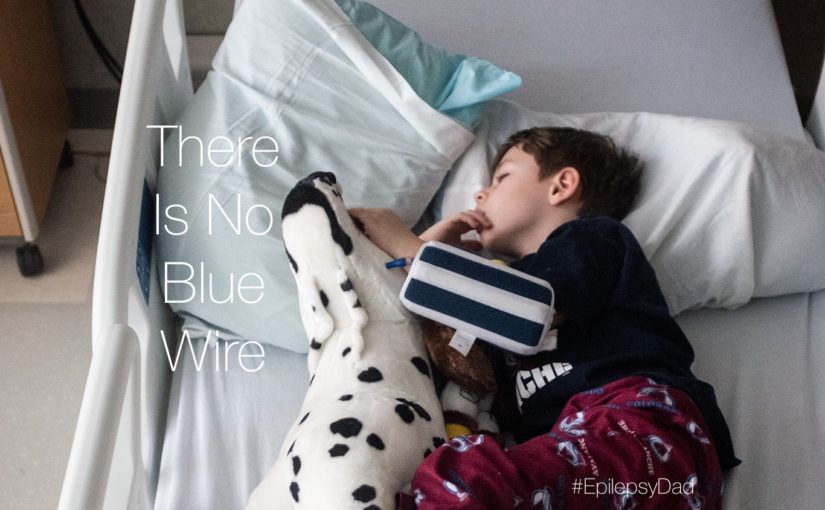I sat in the chair at the side of my goddaughter’s bed in the hospital. She had major surgery a few days prior and was recovering in the intensive care unit.
As she slept, her body continued the healing process, connected through tubes and wires to various machines delivering her medicine and monitoring her progress. A screen displayed her heart rate and breathing rate with regular peaks and valleys of rigid blue and green lines. Rhythmic tones broke through the muffled sounds of the hallway outside.
There is something familiar about the screens and the sounds of a hospital room. With my son, we’ve spent months at a time in the hospital. Eventually, the sounds faded into the background, like living near a highway or railroad for too long. It is then the absence of those sounds that I notice.
I stared at the screen and watched the lines move left to right before starting again on the left and overwriting the evidence of the past. At times, the lines perfectly overlapped the pattern of the one before. At other times, the peaks were slightly shifted forward and gave the appearance of a wave being animated to the left.
I watched one of the many intravenous drips. Three drops. Then another three. Then three. Then four. Three. Three. Three. Four. Every fourth cycle, the pattern would change to three, three, four before starting the original sequence again.
Observing these patterns was soothing. It made me feel like she was safe. It made me feel that the universe was continuing in an orderly fashion with every molecule and atom precisely in its expected state and that the cells in her body were repairing the intrusion of the surgeon’s instruments.
The patterns represent order after chaos, stability after uncertainty, and calm after a storm. They bring a sense of control. They bring peace.
As welcome as this feeling was, I didn’t expect to find myself experiencing it again. I thought the first time I felt it, after the doctors were finally able to lift my son from status and stabilize him when we thought we might lose him, would be the only time. I remember sitting in the dark hospital room without the constant flow of doctors, nurses, and therapists and letting out a breath of relief. It was probably the first deep breath I had taken in months.
I would feel that feeling again many times as my son’s condition proved challenging to manage, and we found ourselves back on the neurology floor of the children’s hospital. Each stay started in a panicked attempt to wrestle back control from his seizures, and each stay ended with another deep breath and the thought that we had gone through an ordeal for the last time.
But there is no last time for us. Whether it’s from surgeries or complications for our son, for my aging parents after a stroke or a fall, or for our goddaughter as she attempts to find a way forward to better health, we will always find ourselves back in the hospital, surrounded by the monitors and sounds.
When we find ourselves there, listening to the sounds of the machines, we will seek out the moments of calm, stability, and peace that come from the comforting presence of these patterns. While we can never know what will happen next and have little control over the outcome, we can choose how we experience it.
As I sat beside my goddaughter, I chose to embrace that peace.
Because in that moment, it was enough.


